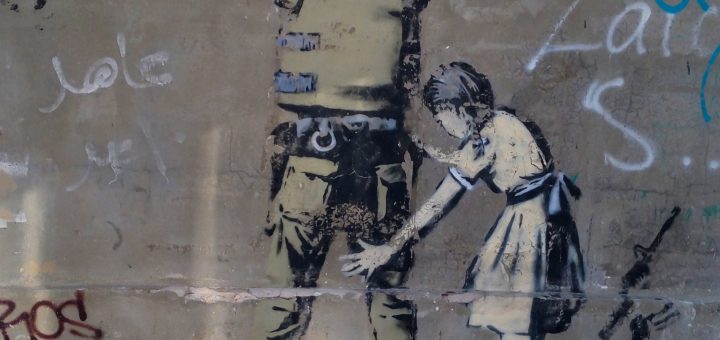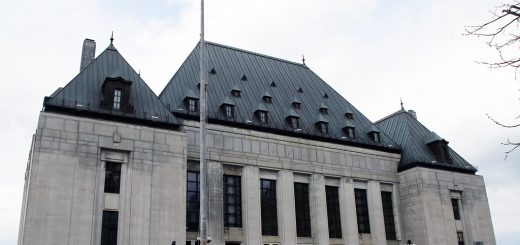R v Ali : Strip Search Justified by Police Hearsay Evidence

Strip searches are an invasive police power that, if conducted without the proper preconditions, can infringe s. 8 of the Charter of Rights and Freedoms 1982, Schedule B to the Canada Act 1982 (UK), 1982, c 11(“the Charter”). S.8 protects an individual’s right to be secure against unreasonable search and seizure. It is established in the case law that the police are only justified to use strip searches where there are reasonable and probable grounds to do so (R v Golden 2001 SCC 83, para 99 [Golden]).
In R v Ali 2022 SCC 1 [Ali SCC], the Supreme Court of Canada (“SCC”) ruled that hearsay evidence—evidence from a witness testimony regarding someone else’s comments—shared by the police could be relied on to establish reasonable and probable grounds that would justify a strip search. The decision, which was appealed from the Alberta Court of Appeal (“ABCA”), was decided in favour of the Crown on the basis that the police acted on reliable hearsay evidence in deciding to conduct the strip search. While the majority decision—as well as Justice Côté’s concurring decision—is brief, its implications are far reaching in terms of justifying the use of police power in strip searches and may water down the protection provided under s. 8 of the Charter.
The Facts
On April 28, 2014, the police obtained a search warrant to search a Lethbridge residence suspected to have been related to a cocaine trafficking operation (R v Ali, 2020 ABCA 344 at para 3 [Ali]). That evening, the warrant was executed and the accused, Mr. Yasin Mahad Ali, was arrested on site. After being advised of his rights, a search incident to arrest was conducted, which revealed that the accused was in possession of a large amount of cash, a cell phone, and a small bag of marijuana (Ali, para 31).
The officer supervising the warrant’s execution, Constable Darroch, suggested that the accused be strip searched, based on the rationale that during the police entry there was minimal time to conceal drugs; a basic search had revealed no cocaine possession; and there was an adjustment on the back of the accused’s buttocks area. Constable Darroch also testified that he relied on an informant’s tip that the accused may be carrying drugs “on their person” (Ali, para 20), and Constable Odorski’s (the other officer present) remark that the accused was “reaching towards his nether region”, before deciding to proceed with the search (Ali, para 9). Upon carrying out the strip search, the police uncovered cocaine in between the accused’s buttocks (Ali, para 34). At trial, the accused applied to exclude the cocaine on the basis that the strip search infringed ss 8 and 10(b) of the Charter. However, the trial judge dismissed the Charter argument (Ali, para 35).
The Strip Search Standard
According to the SCC in Golden, four factors must be satisfied for a strip search to be considered lawful: it must be conducted “as an incident to a lawful arrest for the purpose of discovering…evidence related to the reason for the arrest”(Golden, para 99); the police must establish reasonable and probable grounds for the strip search; the police must establish reasonable and probable grounds for the arrest; and the search must be “conducted in a manner that does not infringe s.8 of the Charter” (Golden, para 99). The reasonable and probable grounds test does not require the police to eliminate all other reasonable inferences, meaning that the police do not need to have direct or substantial information prior to acting on the search (Ali, para 21-22). Reasonable and probable grounds have both a subjective and objective component: the officer conducting the search must have reasonable and probable grounds to conclude that a strip search was necessary in the circumstances, and the grounds must be justifiable from the standpoint of a reasonable person (Ali, para 50).
The ABCA Decision
Two issues were dealt with at the ABCA. Firstly, whether the trial judge applied the proper test for justifying a strip search, and secondly, whether the Constable Odorski’s comment was inadmissible, given that it constituted “hearsay” evidence, and by extension, the police’s reliance on it (Ali, para 6).
The ABCA was divided regarding the first issue. The majority held that the trial judge properly relied on the Golden test and correctly found that reasonable and probable grounds only required the police to demonstrate “a factually based likelihood that there are grounds for the strip search, rising above mere suspicion” (Ali, para 19). In contrast, the dissenting judge argued that the trial judge incorrectly relied on general search incident to arrest cases, as opposed to Golden, which discusses the specific test for strip searches incident to arrest (Ali, para 43). The dissenting judge pointed to the trial judge’s omission of the Golden principles in the decision to conclude that the trial judge had applied the wrong test for strip searches (Ali, para 44).
On the second issue, the ABCA unanimously found that the information relied on by the police—namely, the testimony that Constable Odorski saw the accused reaching towards his lower region—was admissible evidence. While the court accepted that “hearsay” is generally inadmissible as evidence, they acknowledged that police officers do not need to assess the validity of information they rely on during an arrest or search in a similar fashion. In other words, as long as the information provided by another police officer was reliable and credible, that information would not be rendered inadmissible just because it was introduced as “hearsay” (Ali, para 14). Thus, the court included as evidence Constable Darroch’s testimony that he relied on Constable Odorski’s comment before conducting the strip search on the accused.
Where the court split was in determining whether the “hearsay” evidence was sufficient to establish objective reasonable and probable grounds for a strip search to take place. The ABCA majority held that it was objectively reasonable to infer that the accused had hidden drugs in his “nether region” when he reached towards it (Ali, para 21). The dissenting judge, however, held that the “hearsay” evidence was not reliable: nothing in the evidentiary record pointed to the two constables actually seeing the accused reach towards his nether region (Ali, para 57). Absent Constable Odorski’s comment, the dissenting judge argued that the remaining evidence—which included the “short period of time” argument raised above and the police finding a cell phone, cash and marijuana on the accused—did not amount to sufficient reasonable and probable grounds (Ali, para 58).Consequently, the dissenting judge concluded that although there was evidence that “Officer Darroch subjectively believed that the appellant had secreted drugs on his body, there was no objective evidence to establish reasonable and probable grounds that drugs would be found there” (emphasis added; Ali, para 59).
As the accused had already served his sentence at the time the decision was reached, neither the majority nor the dissenting judge conducted a s. 24(2) Charter analysis, which is engaged when courts are asked to decide whether admitting Charter-violating evidence would bring the administration of justice into disrepute (Ali, para 63).
The SCC Decision
Speaking on behalf of the SCC, Justice Moldaver ruled in favour of the Crown in finding that reasonable and probable grounds were established, and that the strip search was therefore justified (Ali SCC, para 2). The court reached this conclusion based on the fact that “the police had confidential source information that their target was in possession of a large quantity of cocaine and that he kept most of his drugs on his person”(Ali SCC, para 3); that the accused was standing next to items consistent with drug trafficking; that the accused’s pants were partially down when he was being arrested; and that an officer reported seeing the accused reach towards the back of his pants (Ali SCC, para 3). As for the issue of whether the hearsay evidence was reliable, the SCC held that because the defence had chosen not to cross-examine either officer about the information, the accused’s submission of unreliability could not be made. Like the court below, the SCC majority did not rule on the s. 24(2) Charter issue.
Justice Côté concurred with the majority, differing only on the subject of the s. 24(2) Charter analysis. She held that despite the fact that the accused already served his sentence, because he was still subject to restrictions on his liberty—namely, a firearms prohibition and a DNA order—the admissibility of the evidence obtained in breach of his Charter rights ought to be considered (Ali SCC, para 9). Ultimately, she reached the conclusion that the evidence should not be excluded, on the basis that the police misconduct in the circumstance was not serious; the impact of the strip search on the accused’s privacy interests was attenuated because it was conducted reasonably; and there was a strong societal interest in admitting the evidence (Ali SCC, paras 13-15).
Analyzing the SCC’s Decision
Ali builds on the seminal decision from Golden on strip searches incident to arrest. However, the case detracts from the holding in Golden, in that it softens the standard held for establishing reasonable and probable grounds. It is relatively easy to establish a subjective finding of reasonable and probable grounds; thus, the requirement for an objective reasonable and probable grounds acts as a determining factor in assessing whether a strip search is “reasonable”. While proponents of more flexible powers of criminal procedures may be in support of a lowered bar, the practical implications of this may result in more invasive police practices and more frequent warrantless strip searches.
In this case, the court found that there was sufficient circumstantial evidence to justify a strip search, despite there being no evidence pointing directly to the need for one. While the accused’s pants may have been lowered and informants had described that the targets kept the drugs “on their person”, the author sides with the dissent judge’s position that these facts do not provide the high evidentiary foundation that is required for one of the most invasive searches that the police can conduct (Ali, para 61). Perhaps it meets the test for reasonable and probable grounds, and satisfies the standard of mere “suspicion”, but the question remains whether this standard is the right one to apply in the context of strip searches.
Moreover, it is unclear whether the circumstances when the strip search was conducted were sufficiently exigent to justify the search taking place at the scene. Although Constable Darroch testified that he was concerned that the accused had ingested cocaine anally into his body, nothing else in the evidence suggested the need for an immediate search. Considering another strip search was conducted at the police station, the author questions whether such a degrading search had to take place at the residence.
Conclusion
The decision reached by the SCC in R v Ali is not surprising or contrary with respect to the existing jurisprudence on cases of searches incident to arrest. That said, it fails to further develop s. 8 protections to individuals who may potentially be subject to strip searches in public. Unlike in Golden, here, the SCC was reluctant to set a high bar for the Crown to meet, not only in terms of allowing the admission of what could be viewed as “hearsay” as evidence, but also in invalidating the defence submissions on what should be considered reasonable and probable grounds allowing for the execution of strip searches. Although the full extent of this case’s impact on police powers is unclear, it is unlikely that it would have a positive impact for s. 8 Charter rights holders.






Join the conversation